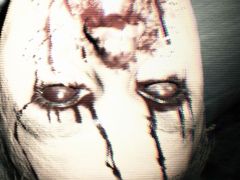Video Gamer is reader-supported. When you buy through links on our site, we may earn an affiliate commission. Prices subject to change. Learn more
Has there ever been a sweeter phrase, particularly one uttered at a video game press conference, than ‘available now’? Probably not. In the cyclical world of gaming, where you can wait for years to play or even just buy something after it’s announced, being able to grab the hot new thing right there and then is (or was) a rare delight. Sometimes it backfires, of course – just ask Sega – but more and more publishers want their ‘PT moment’. Capcom, with its Resi 7 teaser ‘Beginning Hour’, is just one of many. But while its taster was released in a way that resembled Konami’s aborted horror, the demo itself isn’t quite the rip off of that doomed, beautiful experiment some would have you believe.
Yes, there’s a house, and yes there’s something in that house. You walk around in first person, admiring the fixtures and furnishings of the owners, a rural family of farmers who appear to have just agreed to appear on the next season of Channel 4’s Psychotic Hoarders. Like PT, it’s also genuinely unnerving. The demo available on the PlayStation store is 2D-only: the E3 equivalent is playable in PSVR, which should be interesting. And by that I mean horrifying.
For all its superficial similarities to PT, though – and it should be stated that the reason for this comparison is, among other things, that PT grabbed the consciousness so utterly and totally through shock and awe – Resi 7 is also markedly different to it, crossing over into territory more often associated with games like Outlast and Condemned. That the latter collapsed into bizarre, series-ending ridiculousness only two games in shouldn’t detract from the fact it was, before you discovered you could shout men’s heads off because you had a bird-throat, a creepy, cloying survival horror game, where everything felt close except safety.
Beginning Hour feels like that. Its cues are obvious, and some of them literal: there’s at least one Carpenter Synth moment. The whole thing is like an interactive walking tour through the farmhouse from The Texas Chainsaw Massacre, and there are moments which are reminiscent of the (two) good moments from that film’s remake: the bookends, which are punctuated with the whining exposure of an old flashbulb camera. There’s an (overly) explicit reference to the ending of The Blair Witch Project, and apparently even a little ghost girl that you can see if you look hard enough. Like Condemned, Beginning Hour feels much more explicitly rooted in ‘reality’ than PT. But, the detractors ask, for all its inspiration and homage, why doesn’t it feel like the series whose name it actually bears?
Well, what is Resident Evil anymore? It was a fixed camera sci-fi horror jaunt, a Japanese developer recreating western horror leanings, a conspiracy-laden Big Pharma haunted house abstracted through design restrictions and cultural factors. Then it was a panic-action shooter with suplexes and one-liners. A gigantic stone Napoleon chased you at one point. It has either been an interpretation of, or influenced by, Aliens, The Terminator, Re-Animator, Fulci, Sweet Home. And that’s just in the ones you really like. It’s even been a light gun shooter.
The point is, Resident Evil is no longer a name which represents a linear series: it represents a franchise, and in that franchise are a collection of games whose main aim is to interpret horror and/or terror through the prism of whatever technological and cultural factors take it at that time. Some, naturally, function better than others.
Will Resident Evil 7 succeed in being the back-to-basics survival horror game many want? Maybe. It’s certainly not as scary as PT, for what it’s worth, and nor is it the most original horror you’ve ever played: the dilapidated-farmhouse-with-bad-people-in setting has been used so often that, if it wasn’t so technically well-presented here, it would be rather boring. But this demo already has that little bit of intrigue that powered the original game: the discovery of a clue, or an item, that makes you want to see more of the world. The key element in Beginning Hour for me wasn’t the mannequin finger, or the axe, or the videotape, as interesting as they were. It was the photo of a circling helicopter with an Umbrella logo on it. The back of the photo carries a message: ‘Are they watching us from that helicopter?’
It works not just because it establishes the game within a set continuity (the less seen of Umbrella, the better), but because it gets to the core of what made the best Resident Evil games great: the feeling of being at the heart of something far grander than yourself, a certain dreamlike oddness that was alluring in its appeal. Crucially, this was backed up by the feeling that you and your skills, in either twitch or puzzle-solving forms, were key elements to these bizarre adventures. Capcom would do well to not dwell too much on authentic farmhouses and mad horror-blokes in the coming builds – and it’s already been stated that the demo content won’t be in the final game – but to work on the abstraction and pure agency that made Resi such a hit in the first place.

/https://oimg.videogamer.com/images/871c/resident_evil_7_biohazard_5.jpg)